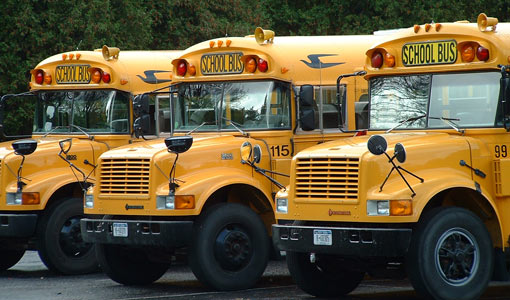
New Amendment Creates Statewide School Accountability Council, Retains Strict Closure Timeline For Failing Schools
February 11, 2014
by Christian D’Andrea
MacIver Institute Education Policy Analyst
How Wisconsin deals with failing schools has quickly become one of the state’s most hotly-debated topics of 2014. Now, a new proposal will aim to use teacher and administrator feedback while retaining strict penalties for schools that chronically fail and show no significant improvement over time.
Representative Jim Steineke (R-Kaukauna) teamed with Assembly Education Committee Chairman Rep. Steve Kestell (R-Elkhart Lake) and Speaker of the Assembly Robin Vos (R-Burlington) to introduce new parameters for a proposed school accountability program in Wisconsin. If passed into law, the bill would force chronically underperforming schools to shut down, create a statewide board to oversee future changes related to accountability and the school report cards, and create stronger safeguards for student data and confidentiality.
This is another effort to pass an encompassing school accountability bill that will affect all Wisconsin schools that accept funding from the state. Governor Scott Walker first advocated for a school accountability system in his 2013 State of the State address. Since then, several versions of an accountability bill have been drafted and discussed, but none have been brought to the floor of either the state Assembly or Senate.
The default parameter that at least five percent of Wisconsin schools have to be labeled as failing regardless of their actual grades has been eliminated in the new amendment. This change came amongst concerns that schools that did not earn failing grades would be labeled as failing regardless of their actual scores. The new amendment also eliminates the multiple-vendor option for voucher schools when it comes to choosing a standardized test. Instead, these private schools will be graded solely on the performance of their voucher students, who will take the same Smarter Balanced tests as their peers in traditional and charter schools.
The new legislation would also create a state-level authority to monitor the School Report Cards and their sanctions twice per year. The Accountability Council would make recommendations on the grading system, its cut scores, and how failing schools are dealt with. It would also allow failing schools the opportunity to appeal their scores if they can prove that their students are showing significant growth through the University of Wisconsin’s Value-Added Research Center (VARC). Additionally, all data collected for these measures will be expressly confidential unless released by students and their families.
Schools will still face closure if they earn failing grades for three straight years or no grade higher than a “D” in five. These schools would then be rebuilt as new branches of high-performing charter schools. However, this new legislation would allow Milwaukee the opportunity to avoid partnering with a charter operator if they can prove that their rebuilt school is sufficiently and fundamentally different than the failing school it replaces. The first year of results will come in the 2014-2015 school year.
The new substitute amendment takes many of those concerns into account while retaining some of the tougher elements of accountability for state schools. It allows schools to appeal sanctions as long as they can prove that students show value-added growth in the classroom. It also aims to help level the playing field by creating a transparent accountability program that introduces penalties for traditional, charter, and voucher schools that are failing to educate students. The bill is scheduled for an Education Committee public hearing this Wednesday, February 12th.
Check back at MacIverInstitute.com for updates on the progress of this amendment.